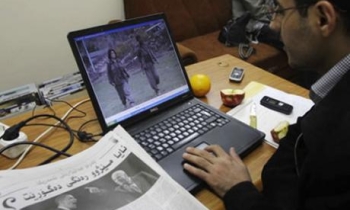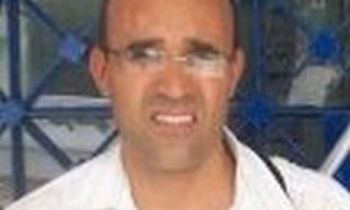THE last man to speak to Paul Klebnikov, the American magazine editor, as he lay dying of gunshot wounds on a Moscow pavement has challenged claims to be made by prosecutors this week that the killing was carried out by Chechen hitmen.
Alexander Gordeyev, deputy editor of the Russian language edition of Newsweek, said Klebnikov had told him the shots were fired by a man of Russian appearance – not someone from the Caucasus.
Gordeyev, who said he had twice given his information to prosecutors, indicated that he would boycott the trial, starting on Tuesday, of three Chechens accused of the murder because it is being held in camera.
"He said the word Russian’ twice, sure of himself and without thinking about it," wrote Gordeyev in a Newsweek editorial.
Klebnikov, 41, an American investigative reporter of Russian descent who went to Moscow to launch a Russian language edition of the US business magazine Forbes, was shot eight times on July 9, 2004, on the street outside the Moscow building housing both magazines’ offices.
These words were the last that Klebnikov spoke. He lost consciousness as he was being taken to hospital and died in a jammed lift on his way to the operating theatre.
Prosecutors have insisted the trial must be held in camera to protect the methods used to track down and arrest the three defendants. The move has prompted suspicions that the wrong men have been charged to bring the investigation to a close as soon as possible.
"I won’t attend the trial," wrote Gordeyev. "To have a closed trial helps those who ordered the hit."
At the trial, prosecutors will argue that Klebnikov was killed on the orders of Khozh-Akhmed Nukhayev, a fugitive Chechen warlord said to have been angry at the way he was portrayed by Klebnikov in a book about him.
Kazbek Dukuzov and Musa Vakhayev are accused of carrying out the killing, while Fail Sadretdinov, a Moscow notary, is said to have helped them to organise the "hit".
Nukhayev’s whereabouts are unknown. Some reports suggest he was killed in Chechnya months before he is supposed to have ordered the hit.
Critics suspect state investigators found it more convenient to blame a Chechen than to investigate suggestions that Klebnikov had uncovered compromising documents that influential figures in the byzantine world of Russian politics and business did not want published.









